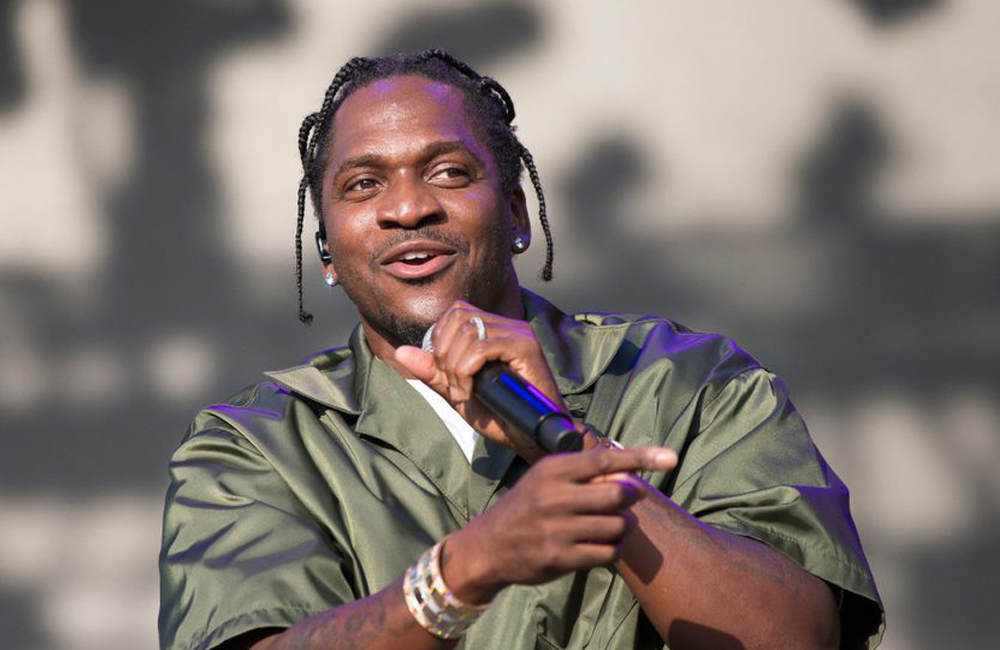Hip-hop’s competitive landscape has shifted dramatically following Pusha T’s pointed attack on Travis Scott in the new Clipse track “So Be It.” The confrontation appears on the duo’s highly anticipated reunion album “Let God Sort Em Out,” marking their first collaborative effort in years and immediately drawing industry attention.
The tension between these prominent figures has been building steadily, with Pusha T expressing frustration over what he characterizes as professional misconduct and personal betrayal. The dispute has captivated fans and industry observers who recognize the significance of established veterans calling out younger generation stars.

Background of the conflict
The controversy stems from incidents surrounding Travis Scott‘s album sessions, particularly involving a private listening experience in Paris where Scott played material for both Pusha T and producer Pharrell Williams. Industry sources suggest that the version presented during this exclusive preview differed substantially from the final release, creating feelings of deception among those who attended the session.
The situation became more complex when Scott’s track “Meltdown” was released featuring content that Pusha T perceived as disrespectful to his longtime collaborator Pharrell. This development transformed what might have been a minor professional disagreement into a more serious accusation of duplicitous behavior within the industry.
DJ Akademiks has weighed in on the controversy, suggesting that timing and miscommunication may have contributed to the current tensions. He has argued that certain collaborative decisions were made after the Paris listening session, potentially creating misunderstandings about Scott’s intentions and the evolution of his creative process.
Pusha T’s position and broader critique
Beyond addressing the specific “Meltdown” situation, Pusha T has used this opportunity to articulate broader concerns about loyalty and authenticity within contemporary hip-hop. His criticism extends to what he perceives as systemic issues regarding how newer artists navigate professional relationships while pursuing commercial success.
The Clipse rapper has particularly focused on questions of mentorship and respect, suggesting that some artists fail to honor the guidance and opportunities provided by industry veterans. This perspective reflects longstanding tensions between different generations of hip-hop artists about appropriate conduct and professional standards.
Pusha T’s comments have also touched on his experiences with other industry figures, including references to past situations involving artists who he believes have demonstrated similar patterns of questionable loyalty. These broader observations suggest that his criticism of Scott represents frustrations with industry trends rather than isolated personal grievances.
Fan response and industry reaction
Social media platforms have become battlegrounds for fans debating the merits of Pusha T’s position versus Travis Scott’s actions. Many supporters have expressed agreement with the veteran rapper’s stance, arguing that professional courtesy and transparency should govern industry relationships regardless of competitive pressures.
Others have suggested that the competitive nature of hip-hop naturally includes strategic maneuvering that all participants should expect and accept. This perspective holds that artists must protect their own interests while navigating complex professional relationships that often blur the lines between collaboration and competition.
The divide in fan reactions reflects broader questions about evolving standards within hip-hop culture. Older fans often embrace more traditional notions of respect and loyalty, while younger audiences may be more accepting of fluid boundaries between friendship and rivalry in pursuit of artistic and commercial success.
Cultural significance and industry impact
This confrontation continues hip-hop’s tradition of public disputes that illuminate deeper cultural tensions about authenticity, loyalty, and artistic integrity. The genre’s competitive foundation ensures that such conflicts generate significant attention while potentially influencing how future collaborations and professional relationships develop.
The involvement of respected figures like Pharrell Williams and the broader context of Clipse’s reunion has elevated this dispute beyond typical rap feuds. Industry professionals are closely watching how this situation develops, recognizing that its resolution may influence standards for professional conduct within hip-hop’s upper echelons.
Looking ahead
As “Let God Sort Em Out” reaches audiences, the inclusion of “So Be It” will likely drive additional discussion about loyalty and professional conduct within hip-hop. The track’s reception may influence how other artists approach similar situations involving perceived betrayals or professional misconduct.
The broader implications extend beyond this specific conflict to questions about how hip-hop culture will evolve as different generations of artists compete for audience attention and industry influence. Pusha T’s willingness to address these issues directly may encourage other veterans to speak more openly about their concerns regarding industry standards.
The situation also highlights the complex dynamics of modern hip-hop, where artists must balance collaborative opportunities with competitive pressures while maintaining authentic relationships with peers and mentors. As the genre continues evolving, these tensions will likely remain central to ongoing discussions about artistic integrity and professional conduct.














